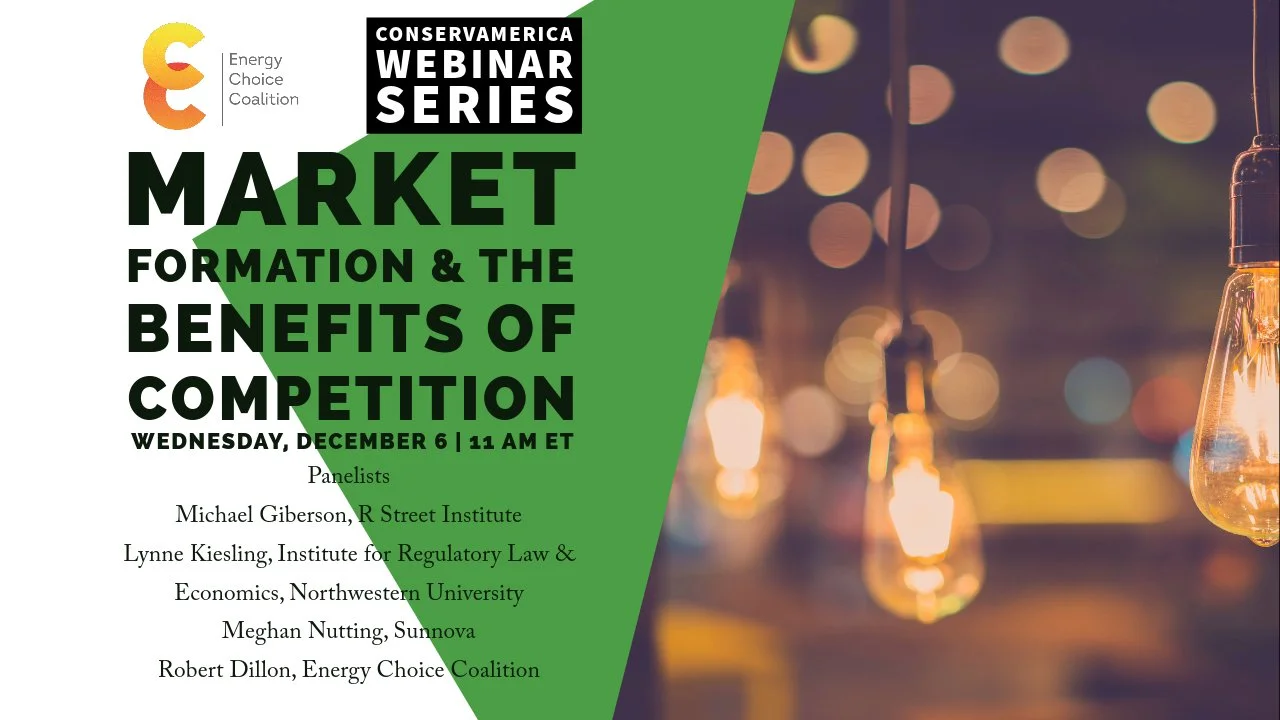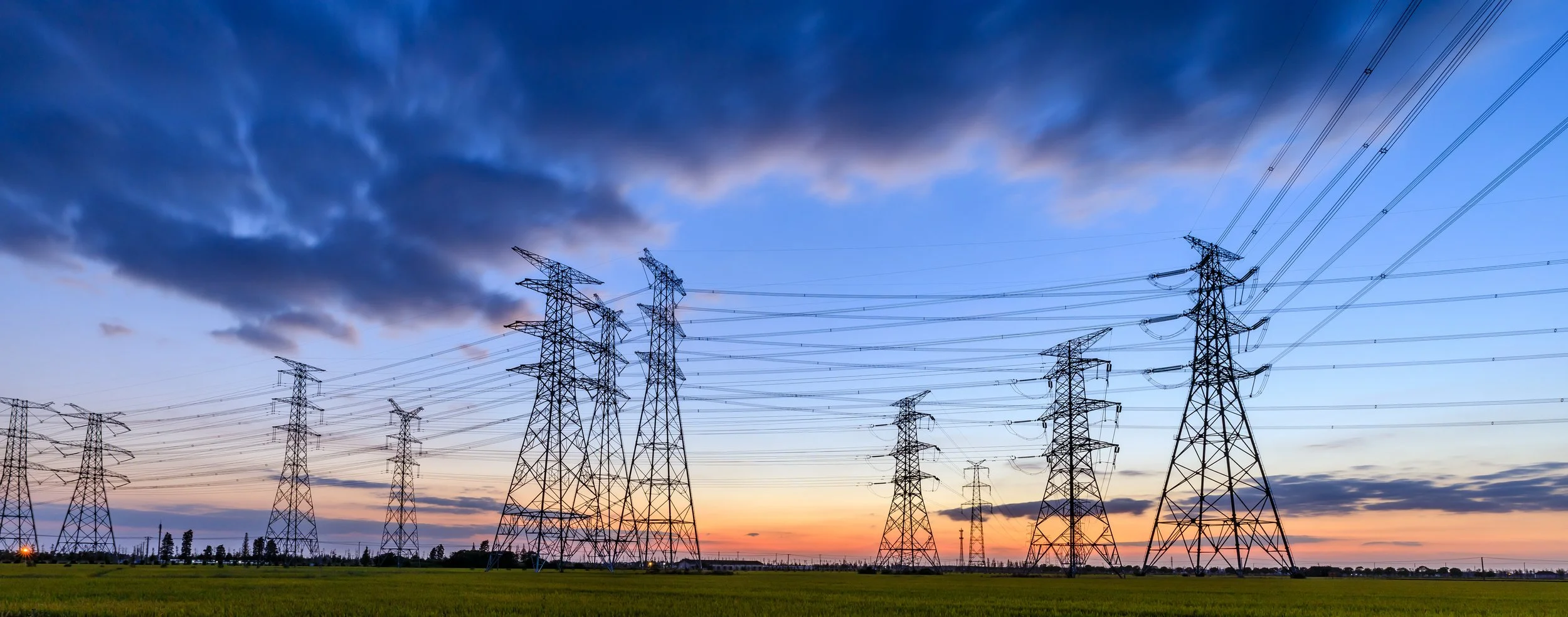The Energy Choice Coalition (ECC) commends Puerto Rico’s Financial Oversight and Management Board (FOMB) for pressing New Fortress Energy (NFE) and the Government of Puerto Rico to clarify their revised agreement and add real protections for ratepayers. In a letter to Executive Director Robert Mujica, the ECC warns that, without meaningful changes, the deal risks entrenching a near-monopoly over current and future power generation.
Preserve an Even Playing Field for Energy Innovation While America Still Has the Lead
If there is one thing most Kansans agree on, it is the importance of reliable, affordable energy and the freedom to choose the best way to produce it. That principle—known as an all-of-the-above energy strategy—has served Kansas and the nation well. It allows energy producers, innovators, and landowners to make decisions based on what works, not on what Washington dictates.
But that principle is under threat.
Currently, Congress is considering changes to clean energy tax credits that would significantly reduce support for wind and solar energy beginning in 2026 while preserving full credits for nuclear, hydro, and geothermal energy through 2036. That kind of selective treatment undermines Kansas’s energy economy at a time when we should be doubling down on production of every kind.
Kansas knows the power of wind and solar because it has experienced it firsthand. The state has attracted over $4.2 billion in clean energy investment in the last few years. Kansas generates more than 50 percent of its electricity from wind. The state has more than 10.8 gigawatts of advanced energy capacity already online, with additional wind and solar projects in development to meet surging demand.
One of those projects is the Kansas Sky solar facility in Douglas County. It’s one of several utility-scale projects under development to meet future demand from growing communities and new industries bringing jobs to the state. Another is the Panasonic battery plant coming to DeSoto. Projects like these are in jeopardy if Congress slashes tax credits passed by previous administrations.
Clean energy growth in Kansas is not just about electrons on the grid. It is also about dollars in the bank for farmers and landowners. Rural Kansans earn more than $20 million every year from wind lease payments. These are stable, long-term payments that help families weather fluctuations in crop prices and extreme weather conditions. These payments can be the difference between keeping the family farm or selling it.
At the community level, renewable projects deliver significant tax benefits. Wind energy has generated more than $658 million in property tax and community contributions in Kansas, supporting schools, fire departments, and local infrastructure.
Congressional cuts would put all that at risk. According to a recent analysis, removing the energy incentives could result in Kansas losing more than 5,200 jobs, reducing the state's GDP by $600 million, and lowering household income across the state. That is not the path to energy dominance or economic growth. That is turning back the clock on a Kansas success story.
This kind of policy shift also goes against President Trump’s campaign promises. He pledged to unleash American energy, bring jobs back to America, and lower prices for working families. The current Senate bill would do the opposite. It would pull the rug out from under businesses that made good-faith investments under policies passed by Congress just three years ago. That is not pro-business or pro-growth.
Some argue that these changes are about reining in spending. However, energy tax credits are not government handouts. They are performance-based incentives that only go to projects that produce real energy. They rely on private capital, not public grants. And they have a proven track record of creating jobs, lowering prices, and strengthening our energy security.
The Energy Choice Coalition supports an all-of-the-above strategy that allows all technologies to compete on a level playing field. That means giving Kansas wind and solar the same opportunity as nuclear or geothermal to help power America’s future. It also means rejecting one-size-fits-all Washington mandates that favor certain fuels while sidelining others.
Sen. Jerry Moran has demonstrated leadership in defending energy tax credits while criticizing other aspects of the previous administration’s Inflation Reduction Act that are detrimental to Kansans. We hope he and others will continue to fight for fairness in energy policy. The sunflower state should be rewarded––not punished––for embracing an all-of-the-above energy strategy to the benefit of Kansans and all Americans alike.
The Senate still has time to get this right. Restore parity across technologies. Protect the credits that are creating real economic value across the heartland. Kansans deserve energy freedom. Let’s keep the playing field level and let the innovators, landowners, and workers who built this industry continue to build it for the future.
House GOP Tax Plan Targets Clean Energy Credits for Early Phase-Out
House Republicans released a draft tax bill Monday that would significantly roll back clean energy incentives established under President Biden’s 2022 climate law. The proposal, advanced by the Ways and Means Committee, accelerates phase-outs and imposes new restrictions on a broad array of tax credits critical to clean energy deployment.
Key provisions include:
Hydrogen tax credit (45V): Eliminated by the end of 2025.
Alternative fuel vehicle refueling credit (30C) and home energy efficiency credit: Both terminated by the end of this year.
Residential clean energy credit (25D): Phased out entirely.
Clean electricity production (45Y) and investment tax credits (48E): Phased out by the end of 2031, with values dropping 20% annually starting in 2029.
Nuclear production tax credit and advanced manufacturing credit: Both sunset by 2031.
Clean fuel production credit (45Z): Extended four years through 2031, but restricted to fuels using feedstocks from the U.S., Mexico, or Canada.
The bill also includes tighter rules on transferability of credits and disqualifies projects using materials from certain foreign adversaries.
While full repeal of the Inflation Reduction Act’s energy incentives had been floated in earlier GOP drafts, this version reflects a more targeted rollback—signaling potential compromise with moderates but raising alarm for clean energy developers, especially those with long lead times.
The Ways and Means, Energy Committee marks up its portion of Trump’s “big beautiful bill” today at 2:30 pm ET. House Republicans want to pass their reconciliation budget out of their chamber by the end of next week.
Former Utility Exec-Turned-Lawmaker Pushes to Slash Rooftop Solar Credits
Solar advocates warn the bill (AB 942) threatens to undermine consumer investments in solar and slow adoption statewide. Critics also note Calderon’s past ties to the utility industry raise conflict-of-interest concerns. The proposal is the latest in a string of policy efforts perceived as favoring utilities over distributed energy solutions.
Overcoming Permitting Barriers for Rooftop Solar
A recent report by the Institute for Local Self-Reliance (ILSR) highlights how inconsistent and cumbersome permitting processes at the local government level hinder the adoption of residential rooftop solar. The new report Overcoming Permitting Barriers for Rooftop Solar in Minnesota breaks down how local governments often slow residential solar projects with cumbersome or confusing permitting rules.
Why Electricity Pricing Needs to Enter the 21st Century
When gas prices spike, drivers can see the change instantly at the pump and adjust their behavior accordingly. But when electricity costs surge, utilities continue charging a flat rate, giving consumers no way to avoid higher expenses. Michael Giberson over at the R Street Institute is out today with a commentary on how this outdated system, rooted in century-old regulations, shields price signals from consumers—preventing them from making cost-saving choices.
Solar Energy Leads U.S. Grid Growth in 2024 Despite Policy Uncertainty
The U.S. power grid added more solar capacity in 2024 than from any other energy source in over two decades, according to a new report from the Solar Energy Industries Association and Wood Mackenzie. With approximately 50 gigawatts of new solar generation, the milestone underscores the rapid expansion of clean energy.
When Incentives Go Bad: Big utilities have forgotten why they were granted monopolies in the first place
Once-public-minded electric utilities have shifted from serving customers to maximizing profits—at the expense of reliability and affordability. That’s the conclusion of a recent paper from Mark Ellis for the American Economic Liberties Project.
Solar Industry Faces Uncertainty Under Trump Administration
The solar power industry, which accounted for over half of all new electricity added to the grid last year, faces a turbulent future as President-elect Trump and a Republican-controlled Congress consider rolling back federal incentives. The 30% federal tax credit that has driven much of solar’s growth is in question, prompting some homeowners to accelerate installations while others are deterred by the uncertainty.
US Imposes Duties on Solar Panels From Southeast Asia
Virginia bill would bar utilities from charging customers for political spending
The utility watchdog Energy and Policy Institute highlights a bill introduced last week in Virginia that would prohibit the utilities Dominion Energy and Appalachian Power from charging customers for their political activities.
The bill, HB 792, would bar Virginia’s investor-owned electric utilities from charging their customers for their dues to trade associations, lobbying government officials, advertising, and other efforts to influence public opinion, charitable giving, and litigation to challenge regulations or laws. Current law in Virginia only bans utilities from recovering the costs of advertising.
Dominion Energy and Appalachian Power would still be able to conduct all of those activities, but they would have to fund them from money they would otherwise return to investors as profit, rather than baking them into customers’ monthly bills.
The bill also would require the utilities to file reports annually to allow regulators and the public to ensure that they are following the law, and would apply financial penalties to any utilities who break the new rules.
Webinar: Market Formation and the Benefits of Competition in Electricity Markets
The Energy Choice Coalition hosted a webinar on Wednesday on the consumer benefits of competition in electricity markets. The discussion is based around a recent R Street Institute paper, Electric Paradigms: Competitive Structures Benefit Consumers, and its recommendations for states to pursue market reforms that increase competition at all levels of electricity markets. Panelists included R Street Institute scholar Michael Giberson, Sunnova’s Meghan Nutting, Northwestern University’s Institute for Regulatory Law & Economics Director Lynne Kiesling, and ECC Director Robert Dillon.
Federal Prosecutors Indict Former Ohio Regulator in Ongoing HB6 Scandal
A federal grand jury on Monday indicted the former chair of the Public Utilities Commission of Ohio on 11 counts related to bribery and embezzlement.
The indictment claims Sam Randazzo accepted a $4.3 million bribe in exchange for helping FirstEnergy pass House Bill 6, the 2019 energy law at the center of a wide-ranging federal bribery probe that has already resulted in former speaker of the Ohio House Larry Householder serving a 20-year prison sentence. Householder was convicted in March 2023 by a federal jury of racketeering conspiracy.
House Bill 6 charged Ohio electricity customers a fee to bail out two nuclear plants owned by the FirstEnergy and slashed incentives for renewables and energy efficiency. Ratepayers continue to subsidize a pair of coal plants owned by FirstEnergy and several other utilities because of House Bill 6, according to the Cleveland Plain Dealer.
Ohio Watchdog Seeks Identity of PUCO Staff that Classified Public Information Related to HB6 Crimes
The watchdog organization the Checks & Balances Project has requested the identities of the Ohio Public Utilities Commission staff members who recommended issuing the protective order that declared publicly available information to be trade secrets in the audit conducted into the details of Ohio’s HB6 law.
The redaction included the identity of the company auditors accused of “overcharging” the Ohio Valley Electric Corp.’s Clifty Creek power plant for coal and other financial information about the utility – details are publicly available in filings to the U.S. Energy Information Administration and on the utility’s website.
The PUCO’s request for the protective order said the “financial information contained in the Audit Reports that is highly sensitive in nature.”
Upcoming Webinar: Market Formation and the Benefits of Competition
On Wednesday, December 6 at 11 a.m. EST, join us for a conversation on competition in electricity markets. Competition provides economic, reliability, environmental, and governance benefits. Yet 18 states still use the traditional regulatory model that allows large vertically integrated utilities to hold a monopoly in their service areas. Another 19 states allow wholesale competition but still allow regulated monopolies to serve all or most retail customers. Just 13 states and Washington D.C. allow competition at the retail and wholesale levels. While many states are considering increasing competition in their wholesale markets, small consumers in retail markets are still being left behind. Click here to register for this webinar at 11 a.m. EST on Wednesday, December 6.
Michigan Utilities Flood Legislators with Cash Ahead of Clean Energy Debate
The Energy and Policy Institute recently published the following report detailing how utility campaign giving nears $500K as Michigan lawmakers weigh energy bills.
Michigan utility giants DTE Energy and Consumers Energy have given state lawmakers nearly half a million dollars in campaign contributions this year, according to new state disclosures that come amid worries that the same legislators will weaken key bills to accelerate the transition to clean energy to appease the utilities.
Political action committees (or PACs) tied to DTE and Consumers have channeled a total of $479,450 to campaign accounts tied to legislators, Governor Gretchen Whitmer, and broader party funds between January 1 and October 20. The filings, released this week, show funds affiliated with 119 of 148 state legislators – 80% of the body – have taken utility money this year. House and Senate energy committee members and chairs are notable beneficiaries, including some who promised to usher in a new era of utility accountability after widespread power outages earlier this year.
ILSR Releases Community Solar Tracker
The Institute For Self-Reliance (ILSR) has launched a Community Solar Tracker on its website to follow the expansion of rooftop solar beyond individual homeowners. ILSR tracks community solar capacity in states with formal programs that allow non-utility ownership. Through community solar, individuals subscribe to a portion of a nearby solar garden and get credits on their energy bill for the electricity it produces. This way, people without the financial means for solar on their rooftops and people who don’t own suitable rooftops can still reap the benefits of renewable energy. ILSR’s website includes toolkits and other interactive material to empower local residents who want to bring community solar to their area.
Report Looks at Group Studies to Ease DER Interconnection Backlog
The Interstate Renewable Energy Council (IREC) is out with a new report on the use of “group studies” to streamline the interconnection of distributed energy resources (DERs) to the electric distribution grid.
The report, Thinking Outside the Lines: Group Studies in the Distribution Interconnection Process, aims to help regulators, utilities, and clean energy stakeholders evaluate whether group studies may be an effective avenue for addressing interconnection issues.
As an increasing number of DER projects seek to interconnect to the grid, the interconnection process has slowed in many states. It is not uncommon for DER projects to spend years waiting in a queue to be studied. Fewer than 25% of solar and wind projects successfully get through the interconnection bottleneck. Those that do face rising costs, some almost 400% higher than previous years.
Arizona Regulators Vote to Revisit Compensation Rates for Rooftop Solar
The Arizona Corporation Commission (ACC) voted this month to explore possible changes to the compensation rate paid to future rooftop solar customers. The three-to-two vote to reconsider utility buyback rates could make rooftop solar less economical and accessible for many Arizonans.
The state’s compensation rates for homeowners who sell excess electricity from solar rooftops to their utility are already below the average wholesale price.
The ACC heard five hours of public comment on the question of whether to reconsider utility buyback rates with testimony from a broad coalition of businesses, employees, ratepayers, realtors, owners of rooftop solar and other stakeholders who said the commission was hostile to solar energy and would rather see Arizonans remain dependent on coal and natural gas.
Utility Drive Opinion: Competitive power markets are cleaner, cheaper and safer
Former FERC Chairmen Jon Wellinghoff and Pat Wood write that competitive market systems have proven more effective at driving cost-effective decarbonization than single-utility markets, all while fostering reliability and long-term planning. The op-ed originally appeared in Utility Drive on Sept. 15.
Experts believe that this summer has been the hottest ever recorded on Earth. At the same time that severe weather events are wreaking havoc on our power systems, U.S. energy costs rose two times faster than inflation in 2022. These trendlines are alarming and rightfully capture our attention. Also alarming? The sentiment among some of our nation’s federal electricity regulators that we should move away from open, competitive markets toward monopoly-dominated structures. In the face of pressing cost, climate and grid reliability challenges, this shift would have massive negative consequences for all Americans.





















